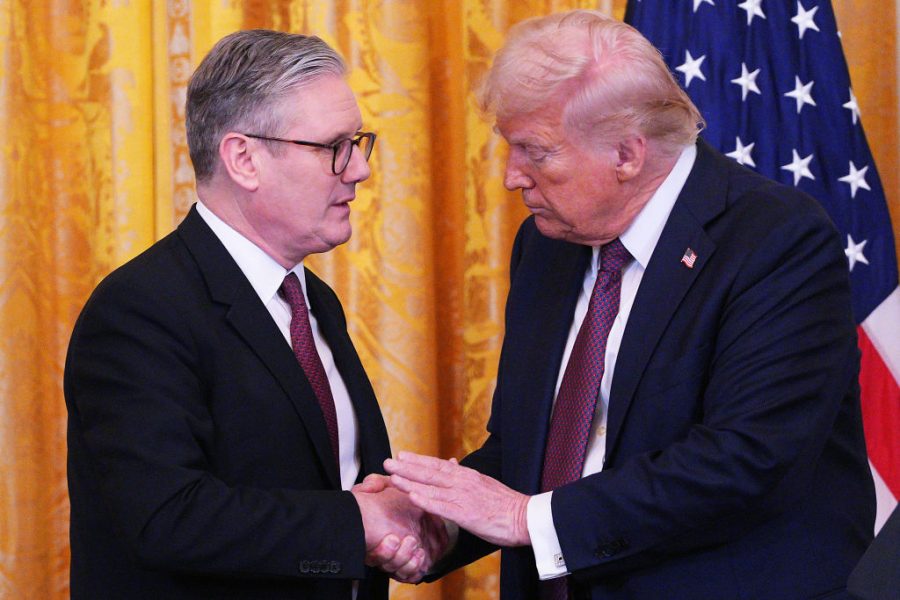So it turns out he wasn’t bluffing after all. Six weeks after taking office, Donald Trump has made two big decisions overnight: pausing all American aid to Kyiv and imposing 25 per cent tariffs on Canada. Both will cause consternation in Whitehall – but it is the situation in Ukraine which is of most immediate concern. Less than 24 hours after Keir Starmer unveiled his ‘four-point plan’ in parliament, it already risks falling apart.
Speaking in the Commons, the Prime Minister said yesterday that the West must keep military aid flowing to Ukraine. Asked by Stephen Flynn about the prospect of a pause in contributions, Starmer replied ‘As I understand it, that is not its position.’ But hours later, Donald Trump did exactly that. The President also took a dim view of President Volodymyr Zelensky’s claim that a peace deal is still ‘very, very far away’, calling the Ukrainian’s statement the ‘worst’ and declaring ‘America will not put up with this much longer’.
The gap between the UK and US has now become a chasm
Starmer has repeatedly insisted that the West must increase pressure on Moscow with further sanctions. But Trump is reportedly now looking to ease them, with talks to improve US-Russia relations expected in the coming days. Then there is the issue of security guarantees, with Starmer wanting assurances from America. ‘The mineral deal is not enough on its own’, he told the Commons yesterday. Trump, though, appears unwilling to offer little else. His Vice President J.D. Vance defended the minerals deal on Fox last night, saying: ‘That is a way better security guarantee than 20,000 troops from some random country that hasn’t fought a war in 30 or war years.’
Both the pause in aid to Ukraine and trade war with Canada will push British statecraft to the limit. But as Keir Starmer wrestles with problems abroad, he can take some comfort from the fact he at least has considerable domestic backing. The British public is consistently supportive of aiding Ukraine and views Canada as one of the UK’s closest allies. In such circumstances, it is no surprise to see much of the British right is now breaking with Trump publicly.
Robert Jenrick, who once said he’d vote for Trump, declared he was ‘sickened’ by the ‘degrading spectacle’ of Zelensky’s Oval Office showdown. Nigel Farage admitted the encounter was ‘regrettable’ and ‘will make Putin feel like the winner’. Kemi Badenoch has this morning called Trump’s pause in aid ‘profoundly worrying’. One of her own backbenchers, Graham Stuart, has even suggested that ‘we have to consider the possibility that President Trump is a Russian asset’.
The relative consensus on foreign policy in Westminster is yet another reminder of the difference between Britain and America. The gap between the countries has now become a chasm. Closing it could well be a bridge too far for Keir Starmer.







Comments